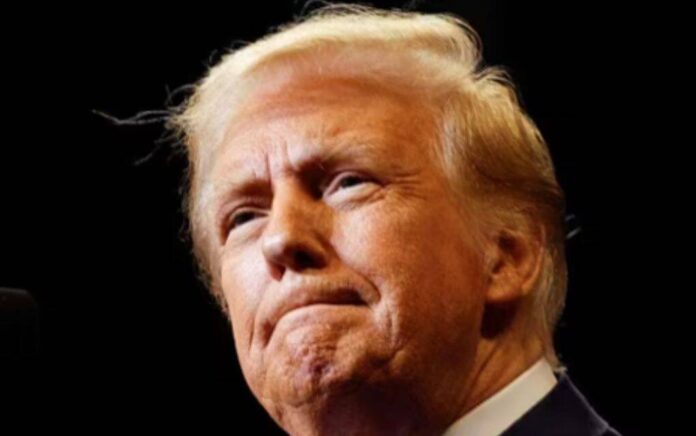
Trump’s ready to get to work as soon as he’s inaugurated as president. But some members of the GOP want to stop him in his tracks.
And Donald Trump has been stabbed in the back by these Republican senators.
A quartet of Republican lawmakers could wield significant influence over the Senate’s 53-47 GOP majority, potentially throwing roadblocks in front of President Trump’s legislative agenda if they choose to vote as a bloc, insiders revealed to the New York Post.
The group’s influence has already been felt, as they reportedly collaborated to derail Florida Rep. Matt Gaetz’s nomination for attorney general.
Leading the pack is Kentucky Sen. Mitch McConnell, a seasoned political operator who, despite being sidelined as Senate Republican leader following a string of health issues, remains a formidable power in the chamber until at least 2027.
“I think McConnell is in kind of a petulant mood and has been on a jihad against his own party for three years. So it’s potentially a big problem,” one Republican Senate insider said.
Though McConnell largely delivered on Trump’s legislative priorities during his first term, the two have frequently clashed, particularly over issues like Ukraine.
As the incoming chair of the appropriations defense subcommittee, McConnell is poised to wield significant leverage, including the ability to ensure Ukraine funding is included in future spending bills.
Their contentious relationship dates back years. After the 2020 election, McConnell called Trump “stupid” and a “despicable human being.” Trump, known for his blunt retorts, has repeatedly referred to McConnell as an “old broken down crow.”
Yet, following Trump’s latest electoral victory, McConnell extended an olive branch, stating, “I’m going to do everything I can to help the new administration be successful.”
Two other members of the group, moderate GOP senators Susan Collins of Maine and Lisa Murkowski of Alaska, also have a history of opposing Trump on key issues.
Both senators, political fixtures in their respective states, operate with a degree of independence that owes little to Trump’s influence.
Collins and Murkowski were pivotal in blocking Trump’s efforts to repeal Obamacare in 2017 and voted to convict him during his second impeachment trial after the January 6 Capitol riot. They also joined McConnell in opposing Gaetz’s attorney general nomination. Trump’s attempts to unseat Murkowski through a primary challenge in 2022 ended in failure.
“Collins is in Maine, she is in a very difficult reelection because she is in a state which voted seven points for Kamala Harris, and she is notoriously independent in how she acts,” GOP strategist Ryan Girdusky explained. “Murkowski is in a conservative state but just doesn’t seem to like Donald Trump. She’s just a thorn in his side for absolutely no reason.”
A second Republican insider predicted the pair “are going to be difficult.”
Completing the group of GOP senators who are foes of Donald Trump, is Utah’s incoming Sen. John Curtis, a moderate Republican who shares a political philosophy with former Beehive State Sen. Mitt Romney, one of Trump’s fiercest critics.
While serving in the House, Curtis was a member of the bipartisan Problem Solvers Caucus and chaired the Conservative Climate Caucus, positions that often clashed with Trump’s skepticism of climate policy.
During the primary, Trump endorsed Curtis’s opponent, Riverton Mayor Trent Staggs, but Curtis secured the enthusiastic backing of Romney. Curtis made his stance clear during a June debate: “I’m not going to give him an unconditional yes to anything he wants.”
As these four senators prepare to navigate the legislative landscape, their independent streaks suggest they could complicate Trump’s efforts to push through his agenda, shaping the balance of power within the GOP-controlled Senate.
Stay tuned to The Federalist Wire.



















